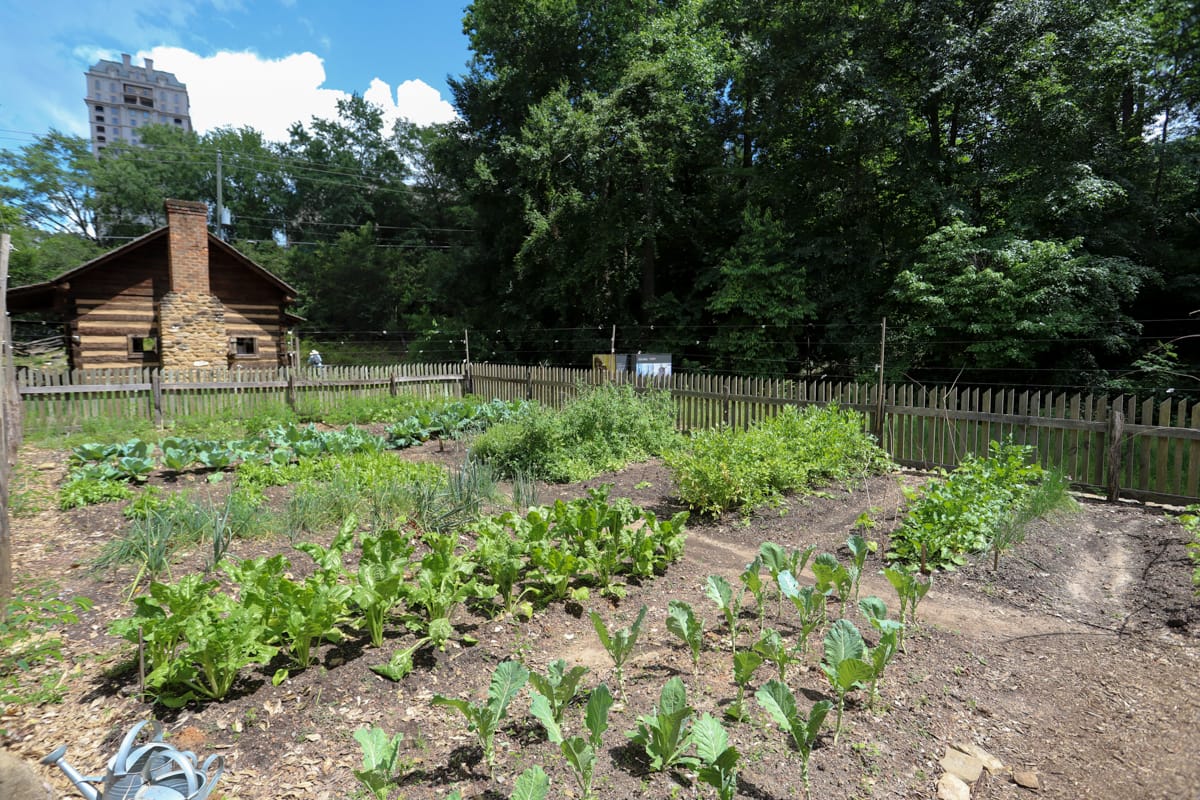Unprecedented times call for unprecedented measures. The gardens at the 33-acre Atlanta History Center have found a new purpose: providing fresh produce to combat food insecurity in the community. Concrete Jungle is a volunteer-run local organization that is dedicated to providing fresh food to residents in need, and the pandemic has resulted in a sharp increase in the amount of people coping with food insecurity. For those who have lost their jobs, had their hours cut, or can’t find new work in the face of COVID-19, Concrete Jungle has helped to bridge the gap between growers and the community.
Concrete Jungle was founded in 2009 by Craig Durken and Aubrey Daniels who gathered a group of friends to go and collect apples from forgotten trees around the city. In the years since, Concrete Jungle has provided 93,564 pounds of fresh produce to those in need.
The Atlanta History Center has been partnering with Concrete Jungle over the past few months and they have donated over 900 pounds of food with “no plans of stopping” according to a statement on the Atlanta History Center website. “The whole time I’ve tried to keep the attitude that I am contributing a small amount to something larger, and that if we all did what we could, we could carry each other through the difficult times,” said Emily Roberts, Director of Urban Agriculture at Atlanta History Center. “This has given me hope and resolve during the pandemic.”
Smith Farm features several gardens brought back to life from the 1800s: a kitchen garden, field garden, and enslaved people’s garden. Today the Goizueta Garden staff is dedicated to using those plots to cultivate food for those in need.

“On a functional level, it’s also a working farm in an urban space, with less than one-fifth of an acre for vegetable production,” said Atlanta History Center CEO Sheffield Hale. “We know that food insecurity is particularly acute in urban areas with majority Black populations, a condition made worse by health and economic disparities experienced by Black communities that COVID-19 has exacerbated. These are multifaceted problems with causes that can be traced back, in many ways, to legal segregation and enslavement. We thought: what better way to make use of this landscape to do our part for our community during this time of need?”